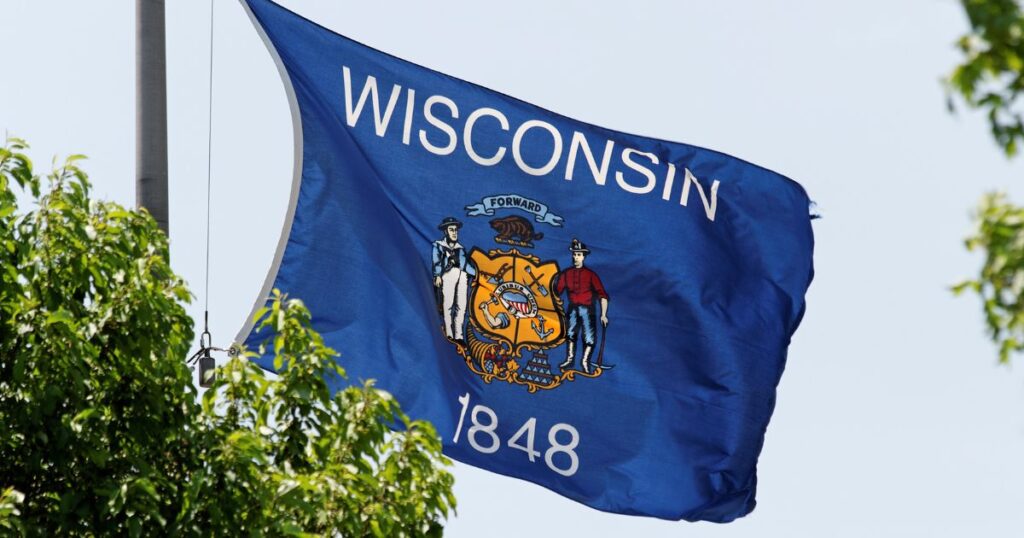Republican lawmakers in Wisconsin have introduced new legislation to legalize medical marijuana, reigniting a long-standing debate within the state. This latest effort, announced on September 29, 2025, aims to create a pathway for patients with serious health conditions to access medical cannabis legally.
While the full text of the new bill has not yet been made public, this move signals a significant moment for cannabis reform in a state that has lagged behind its neighbors. Currently, Wisconsin is one of just ten states without a medical marijuana program, even as public support for legalization continues to grow.
Another Attempt at Cannabis Reform
The new bill is being championed by a trio of Republican lawmakers: Senate President Mary Felzkowski (R-Tomahawk), Senator Patrick Testin (R-Stevens Point), and Representative Patrick Snyder (R-Weston). Their proposal aims to establish a state-regulated program to license and oversee cannabis growers, processors, labs, and dispensaries.
According to a press release, the legislation is designed to provide patients with qualifying medical conditions access to “safe and legal” medical cannabis.
Senator Felzkowski emphasized the compassionate goal behind the legislation. “Someone who suffers from a serious health condition should not have to make the choice to travel to another state or break the law so they can try an alternative medicine for relief,” she stated. “This legislation is about giving our friends, family members, and neighbors suffering from a chronic illness the freedom to explore another option with their doctor.”
Despite the renewed push, the bill’s sponsors acknowledge they face an uphill battle. Representative Snyder has even described the latest effort as a “Hail Mary,” highlighting the political hurdles that have thwarted past proposals.
What to Expect from New Bill Attempting To Legalize Medical Marijuana in Wisconsin
Although specific details are pending, the structure of previous bills introduced by the same lawmakers offers clues about what the new legislation might entail. A similar measure sponsored by Felzkowski and Snyder during the 2022-2023 biennium outlined a fairly restrictive program. That bill prohibited smokable cannabis products, allowing patients to access only liquid or oil forms. It also did not permit patients to grow their own cannabis.
The new bill seems to follow a similar path, allowing ingestion through oils, tinctures, edibles, and vapors while continuing to prohibit smoking. Qualifying conditions mentioned in relation to previous and current proposals include cancer, glaucoma, multiple sclerosis, PTSD, inflammatory bowel disease, seizures, and severe chronic pain.
This approach contrasts sharply with Governor Tony Evers’s repeated calls to legalize recreational marijuana, which Republican leaders have consistently dismissed. The focus on a regulated, non-smokable medical program appears to be a calculated effort to build consensus within a divided legislature.
A History of Stalled Efforts
The road to cannabis legalization in Wisconsin has been long and fraught with political roadblocks. Since 2019, multiple attempts to pass even limited medical marijuana bills have failed. Just last year, an effort led by Assembly Speaker Robin Vos to create state-run dispensaries did not gain enough support in the Senate to pass.
This history of legislative gridlock persists despite strong public support. A 2024 Marquette Law School poll found that an overwhelming 86% of Wisconsin’s registered voters support medical cannabis legalization. This widespread approval cuts across party lines and highlights a growing disconnect between public opinion and legislative action.
Wisconsin remains a “prohibition island” in the Midwest, as all of its neighboring states—Illinois, Michigan, Minnesota, and Iowa—have legalized cannabis in some form. This reality forces many Wisconsin residents to cross state lines to access products that are illegal back home.
What Happens Next?
The bill’s sponsors hope to hold a public hearing this fall to begin building momentum. The success of this latest push will depend on its ability to win over skeptical colleagues and navigate the complex political dynamics of the state legislature. While organizations like the Wisconsin Medical Society have expressed opposition to past “medical” marijuana schemes, citing public health concerns, the consistent pressure from voters and neighboring states keeps the issue at the forefront.
For now, advocates and patients can only watch and wait. The introduction of this bill is a critical step, but its journey through the legislative process is just beginning. How lawmakers respond will determine whether Wisconsin finally joins the 40 other states that have embraced medical cannabis or remains an outlier in the nation’s evolving approach to marijuana.















